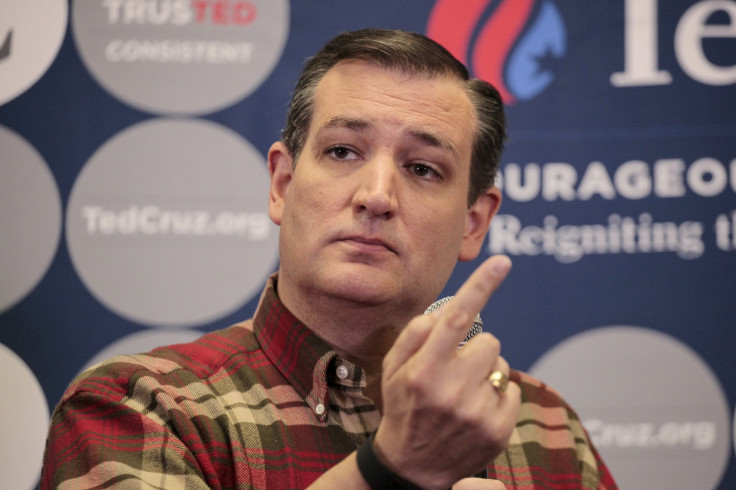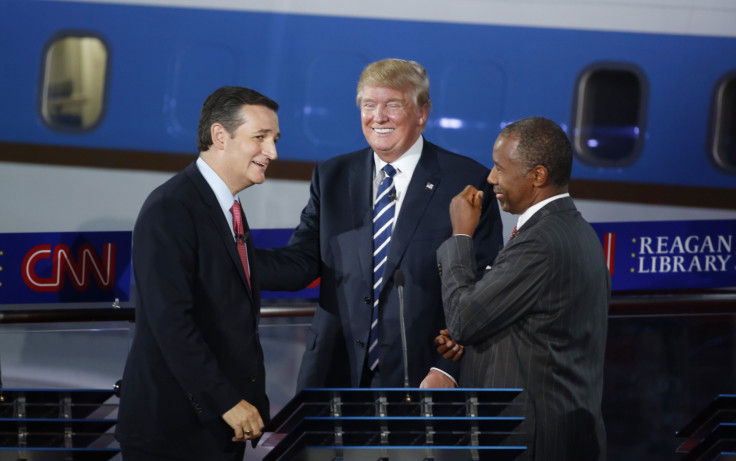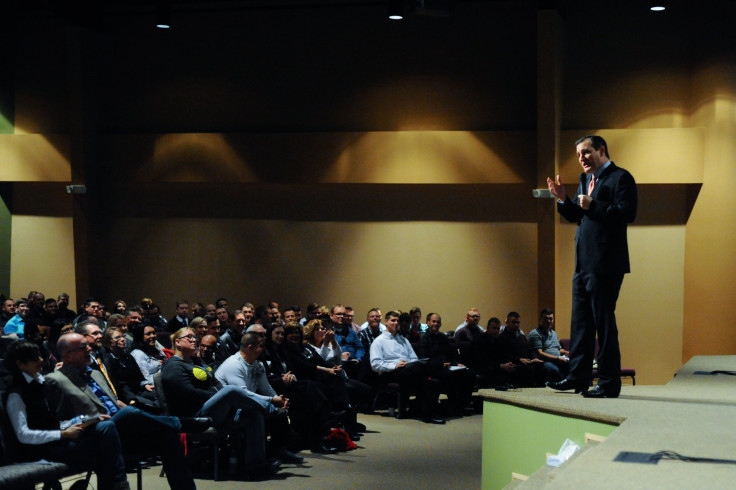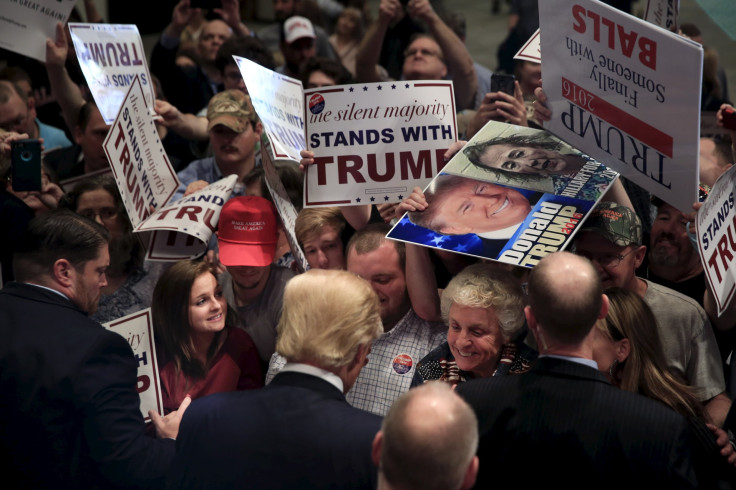Can Ted Cruz Win Iowa? How Caucus Rules Could Hurt Donald Trump

Hundreds of potential volunteers hoping to help Sen. Ted Cruz make history in Iowa Feb. 1 are putting cowboy boots to the ground, knocking on doors and trying to convince voters to show up to the Republican caucuses. And, if they do their part, that could be enough to help the Texan overcome current front-runner Donald Trump, to whom Cruz has been catching up in recent presidential polls across the nation.
Although Trump has led in Iowa for the majority of the last four months, the rising tide for Cruz as well as the rules of the state's caucuses show he may have a serious problem on his hands. While the billionaire knows how to draw big crowds that impress on cable news, Iowa’s obscure, hourslong nominating process generally favors campaigns that can work within the established system, experts say, regardless of what polls may show. Trump, whose campaign is anything but traditional, would have to change the rule book for what gets Iowa voters to the caucuses to win.
“It’s one thing to say ‘I’m a Republican, I’m leaning Republican, and I like Trump,’ versus showing up on that potentially cold and snowy evening and sitting around for a few hours,” said Tim Hagle, a political science professor at the University of Iowa.

The caucus system in Iowa, which is the first nominating state in the presidential race, is much different from regular primary voting where people show up, cast their ballots and take off. Instead, caucus voters show up all at the same time expecting a community discussion about the issues they see as most important before they take a vote. The process welcomes representatives for the candidates, who try to convince undecided caucusgoers through sometimes-passionate speeches.
For the dedicated citizen, that’s no big deal. But, getting the many voters who are on the fence about caucusing or the ones who have never voted to show up poses a problem. Convincing those voters to disrupt their Monday evening patterns to drive to their voting precinct and hang out for a couple hours is easier said than done, experts said. Trump’s strategy appears to be focused on energizing those voters who haven’t cast a ballot in the past, but his on-the-ground organizing may not be equipped to churn out those voters who might sit back and watch Netflix if no one knocks on their doors and tell them to go help choose the next president.
“Inexperienced candidates can sometimes trust that their supporters will remember to go out and vote,” said David Anderson, a political science professor at Iowa State University, theorizing why Trump hasn't invested in ground operations in the same way as other candidates. But “you can’t just trust that your supporters are going to love you enough that they’re willing to do this. I have not yet seen any indication that Trump is doing that.”
Trump's strategy appears to be focusing on bringing in disaffected voters who have had little to no experience in the political system. To turn those nonvoters into voters, the Trump campaign is working to attract volunteers to organize that effort, but experts say he's more removed from the process than others and his ground operation looks underwhelming so far.
Cruz, on the other hand, has been building up his ground-game in Iowa since he announced his candidacy in March when the campaign quickly put an election day plan into place. Since then, the Cruz campaign has signed up hundreds of volunteers, mostly Texans, to travel to the state and canvas Feb. 1. It even recently rented 24 apartments for some of the hundreds of volunteers who have signed up to help on caucus day.

Trump could defy the expectations of the political elite. His sustained front-runner status shows he’s nothing if not a formidable candidate, said Cindy Golding, chairwoman of the Linn County Republican Party in Iowa, noting constituents call her all the time to talk about the billionaire real estate mogul. He’s divisive, but he gets chatter and many Trump supporters are saying they’re actually going to vote for the first time to help him win, she said.
“We get lists of people from every presidential year and we see, year after year, pretty much the same people participate. You’ll have new people who have moved into the area but if you have 70 people in a rural precinct who participate you can pretty much count on 70 people [voting],” said Golding, who has taken a pledge not to endorse a candidate until the nominating process is over. Linn County is the second most populous county in Iowa. “This year? We don’t know because of the wild card Trump is.”
Cruz is putting up a tough fight. Iowa voters, relishing their first-in-the-nation status in the presidential nominating process, put a premium on meeting candidates face-to-face to get a feeling of who they really are and for what they stand. Cruz has visited Iowa repeatedly since he began his campaign, answering questions and meeting voters. That attention to voters has drawn several valuable endorsements from evangelical leaders, including the Thursday nod from Bob Vander Plaats, who experts say could boost Cruz by as many as 4 points in the caucuses.

Trump, on the other hand, hasn’t put that emphasis on meeting voters intimately. Instead, he’s held big rallies that generate media attention and then quickly flown out afterward. He has so far avoided the events that the Golding’s Republican Party puts on to introduce voters to any and all of the candidates even as Cruz and others have accepted the invitations.
There have been signs Cruz already has inspired political engagement in a way that Trump hasn't with his rock star-style campaign strategy. During monthly Linn County Republican meetings, one supporter of each candidate is allowed to stand up and make the case for the favored politician to the group, a surefire sign somebody who is politically involved and likely to vote supports a candidate. Supporters have been showing up to make the case for Cruz since his candidacy began. The first time someone made the case for Trump, Golding said, was in November.
“I will go to a concert. I may even pay money for a ticket,” Anderson said, comparing Trump’s campaign strategy to holding major concerts. “But, if my band asks me to come out and vote for them for musician of the year – if I have to leave my home – I’m probably not going to do it.”
© Copyright IBTimes 2024. All rights reserved.






















